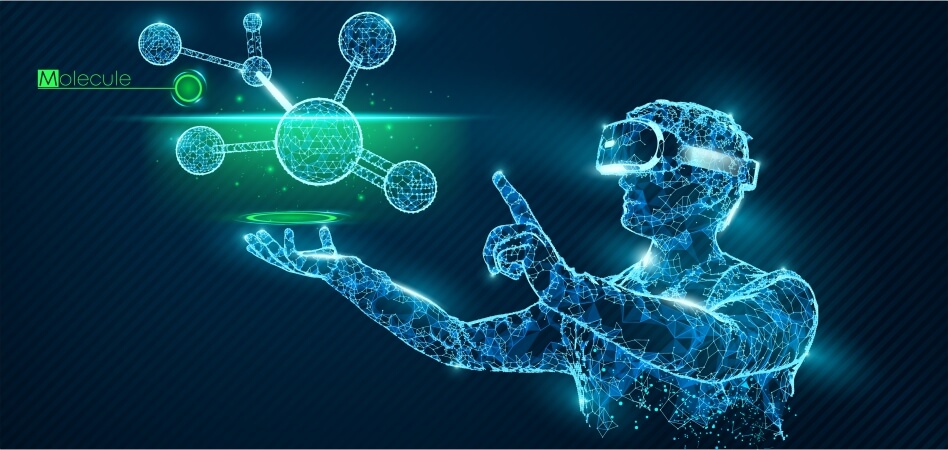Navigating Health in the Digital Age
In our fast-paced, technologically driven world, the integration of wearable devices into our daily lives has revolutionized the way we approach health monitoring. These small, unobtrusive gadgets have become powerful tools, providing real-time insights into our well-being. From tracking physical activity to monitoring vital signs, wearable devices have carved a significant niche in the healthcare landscape.
This article explores the transformative impact of wearable devices on health monitoring in the digital age.
The Rise of Wearable Health Tech
Wearable devices have evolved far beyond mere fitness trackers, expanding their capabilities to encompass a wide range of health monitoring functions. Smartwatches, fitness bands, and other wearables are now equipped with features such as heart rate monitoring, sleep tracking, and even electrocardiogram (ECG) reading. These devices have seamlessly integrated into our daily routines, becoming companions in our quest for better health.
Physical Activity Monitoring
One of the most prominent features of wearable devices is their ability to monitor physical activity. Whether it’s counting steps, measuring distance traveled, or calculating calories burned, these devices offer a comprehensive overview of our daily movements. This functionality has proven instrumental in promoting an active lifestyle, encouraging users to meet daily activity goals and adopt healthier routines.
Heart Rate and Cardiovascular Health
Wearable devices equipped with heart rate monitors provide users with significant insights into their cardiovascular health. Continuous heart rate tracking allows for the detection of irregularities and trends, enabling individuals to take proactive measures. Moreover, some advanced wearables can perform on-the-spot ECGs, offering a level of heart health monitoring that was once confined to medical settings.
Sleep Tracking for Holistic Wellness
Quality sleep is integral to overall well-being, and wearable devices have stepped up to address this aspect of health. Advanced sleep tracking features analyze sleep patterns, duration, and quality. Armed with this information, users can make informed decisions to improve sleep hygiene and, consequently, enhance their overall health and productivity.
Chronic Disease Management
Wearable devices have become indispensable in the management of chronic diseases such as diabetes and hypertension. Continuous glucose monitoring allows individuals with diabetes to monitor their blood sugar levels in real-time, enabling timely adjustments to medication, diet, and lifestyle. Similarly, wearables equipped with blood pressure monitors provide individuals with hypertension the means to monitor their readings regularly.
Nutrition and Hydration Tracking
Some wearable devices now offer features that extend beyond physical activity and vital signs, delving into nutrition and hydration tracking. Users can log their food intake and water consumption, creating a more comprehensive picture of their daily habits. This holistic approach to health monitoring allows individuals to make informed decisions about their diet and hydration levels.
Mindfulness and Stress Management
The impact of wearable devices extends beyond the physical realm, delving into mental well-being. Many wearables now include features for mindfulness and stress management. Guided breathing exercises, stress level monitoring, and even alerts for moments of high stress contribute to a more holistic approach to health, recognizing the interconnectedness of physical and mental well-being.
Real-Time Health Alerts
Perhaps one of the most significant advancements in wearable health tech is the ability to provide real-time health alerts. Some wearables can detect irregularities in vital signs and send alerts to users or designated contacts. This capability has proven lifesaving in instances where prompt medical attention is crucial, offering a level of health monitoring that transcends the capabilities of traditional healthcare systems.
User Empowerment through Data
The true power of wearable devices lies in the data they collect and present to users. These devices transform raw health data into meaningful insights, empowering individuals to take an active role in their well-being. The accessibility of personalized health information encourages proactive health management, fostering a sense of ownership over one’s health journey.
Challenges and Considerations
While wearable devices have undoubtedly made significant strides in health monitoring, challenges persist. Privacy concerns, data security, and the accuracy of health measurements are critical considerations. Ensure that user data is properly handled and that the devices provide reliable data is essential for fostering trust in wearable health technology.
Integration into Healthcare Systems
As wearable devices become increasingly sophisticated, there is a growing opportunity for integration into formal healthcare systems. Collaboration between wearable tech developers and healthcare providers can enhance the continuum of care. Wearable data could supplement traditional diagnostics and provide a more thorough understanding of an individual’s health, ultimately leading to more informed and personalized healthcare interventions.
The Future of Wearable Health Tech
As technology continues to advance, the future of wearable health tech looks promising. Artificial Intelligence (AI) and machine learning algorithms will likely enhance the capabilities of these devices, allowing for more accurate predictions and personalized health recommendations. Moreover, the development of more discreet and comfortable wearables may further encourage widespread adoption.
Conclusion
Wearable devices have transformed the way we interact with our health, transforming how we engage with our health. From tracking physical activity and vital signs to promoting mindfulness and stress management, these devices have become integral to our daily lives. The real-time insights they provide empower individuals to take control of their health, fostering a proactive and informed approach to health. As wearable health tech continues to evolve, its impact on personalized health management in the digital age is bound to leave an indelible mark on the landscape of healthcare.
Read More: https://thecareworld.com/





